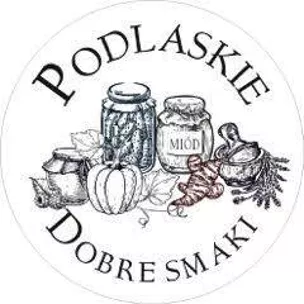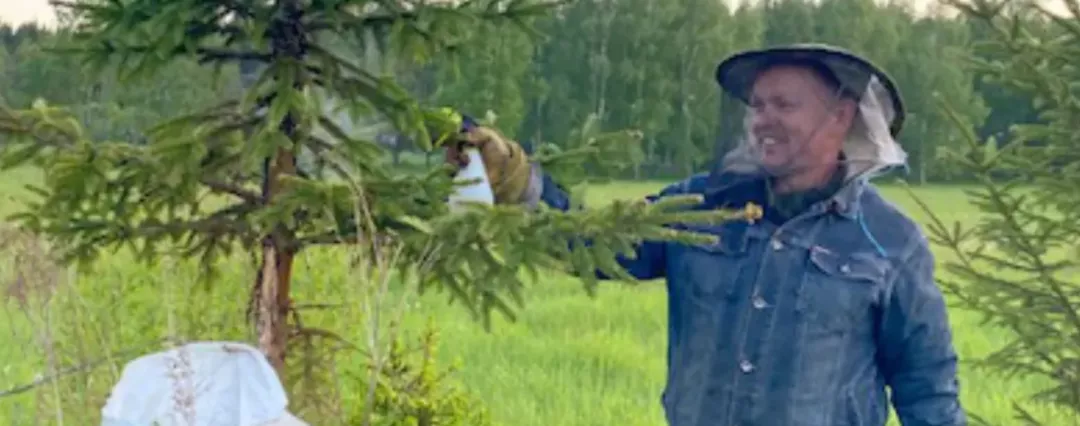General information
RDP Priority
- P3. Food chain and risk management
RDP Focus Area
- 3A: Agri-food chain integration & quality
RDP Measure
- M16: Cooperation
Beneficiary type
- Operational group
Summary
The Operational Group (OG) ‘Podlaskie dobre smaki’ consisted of six agricultural producers in the Mazowieckie region in Poland. The aim of the OG members was to work together, develop a single brand, and increase the production and sales of a range of organic and natural products, including honey, fruit, vegetables, herbs and teas. The project enabled the group to construct a storage facility and purchase a suitable means of transport for direct product deliveries. In addition, a range of machinery and equipment for processing and packaging of various produce was obtained. Training and participation in various events and promotional activities completed the range of project activities implemented.
Results
- The members of the OG acquired new competencies and skills, including using internet tools and social media forums.
- Both the range of products and their quantity have increased - six new products have been introduced.
- Due to the new equipment, the farmers have become more efficient in their production. This created more time to reallocate to direct sales tasks.
- The products on offer were of high quality and were increasingly recognised in the market. This resulted in an increase in customer numbers by approximately 160.

Promoter
Operational Group Podlaske Dobre Smaki *
* The project promoter/beneficiary is an EIP-AGRI Operational Group
Funding
RDP support: 325 000.0 (PLN)
EAFRD: 206 797.5 (PLN)
National/Regional: 118 202.5 (PLN)
Ressourcen
Documents
Context
The Operational Group (OG) ‘Podlaskie dobre smaki’ was formed in the Mazowieckie region in Poland. It consisted of six producers involved in beekeeping, fruit, vegetable and medicinal herbs production and processing. The aim of the participants in the OG was to work together and create a brand that is recognisable nationwide. The group now sells through short supply chains in response to the growing demand of consumers looking for quality products that are produced in an environmentally sustainable manner. In the experience of the group, many customers also prefer to search for products directly at the source to reassure themselves of quality and production methods.
Their key mission is to produce and deliver high quality food products as fast and directly as possible without using intermediaries. They also aim to diversify farm income while maintaining organic farming conditions and complying with sustainable farming principles.
The OG sought to attract more regular customers to boost direct sales and expand production. Direct sales from the farms and fields using a garden market concept were therefore considered distinct business strengths to develop.
The consortium's proximity to the border with Belarus has been a particular challenge since 2021 when a partial entry ban under a state of emergency measure restricted travel and curtailed trade. To compensate for this loss, the consortium members decided to further develop activities based on trading via the internet and social media to attract more customers.
Objectives
The main objective of the project was to create effective conditions that would help expand production in line with organic and sustainable farming principles. In addition, the ambition was to achieve an effective carbon footprint reduction through cooperation and sharing of logistics solutions between farms with regard to production and sales processes. The project further aimed at increasing the range of customers reached so that organic production methods could be further promoted. This would help increase sales and create jobs on the consortium’s farms (involving hoeing, pulling weeds, picking, packing and delivering vegetables).
Activities
The main project activities involved:
- Purchasing machinery and equipment for drying medicinal herbs, packaging honey, and processing fruit and vegetables. This included a garden tunnel for the rapid growing of medicinal herbs, a freeze-dryer, a professional dehydrating unit and scales, a creaming machine and dryer for honey, a kitchen, a stainless steel table, shredders and peelers.
- Constructing a storage facility in a farm building using environmentally friendly solutions for storage, packaging, sorting and direct sales.
- Purchasing a vehicle to improve product delivery and achieve a joint-up distribution of their products.
- Upgrading of the group members’ skills in organic and sustainable production methods (participation in training courses, workshops, practical workshops, cooperation with agricultural advisory centres and the NRN central unit).
- Participating in various webinars, meetings, and study tours in Poland and abroad. This included participation in the Forum of 'Know-How and Innovation in Agriculture' in Warsaw in 2022.
- Promoting products to individual consumers across various counties and during events organised at fairs and festivals.
Main results
- The members of the OG acquired new competencies and skills, including using internet tools and social media forums.
- The range and quantity of products have increased. For example, six new products have been introduced: Jerusalem artichoke, dried medicinal melissa tea, pumpkin, red beet, honey and dried raspberry.
- Due to the new equipment, the farmers have become more efficient in their production, which has created more time to reallocate to direct sales tasks. The OG thereby improved open access to the herb farm and consolidated its sales model of selling straight from the field where customers harvest the crop by applying the garden market concept.
- The products on offer were of high quality and were increasingly recognised in the market, resulting in an increase in customer numbers by approximately 160.
- The increased sales increased the income of group members by 25% and created new jobs across the six farms.
- Overall, the project strengthened the development of this vulnerable border region with Belarus.
Key lessons
- This project received a lot of praise, however, the OG is still learning how to market and sell through online channels.
- Implementing a project such as this is definitely beneficial and the OG encourages everyone to do the same. The implemented activities have a positive impact on mitigating climate change by optimising distribution (collective deliveries of the products ordered) and reducing the carbon footprint of transport.
- The activities are based on cooperation and trust. Both are constructive and essential when seeking to improve product quality and environmentally friendly production methods.
- Traditional production methods enable increased resilience of agricultural production while decreasing its environmental impact.
Good cooperation, care for the environment and sustainable farming – the goal of our activities.
